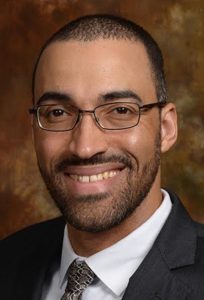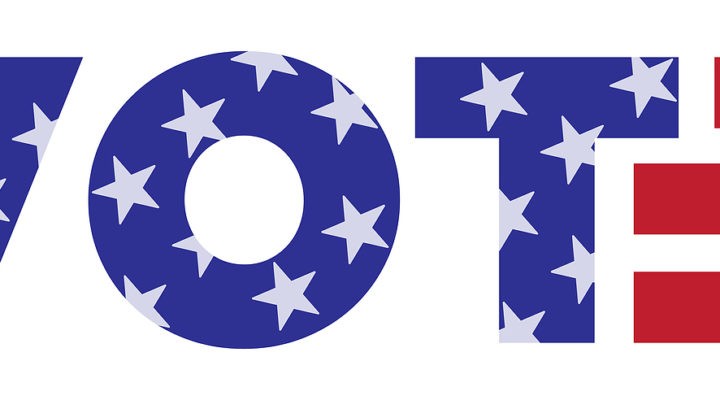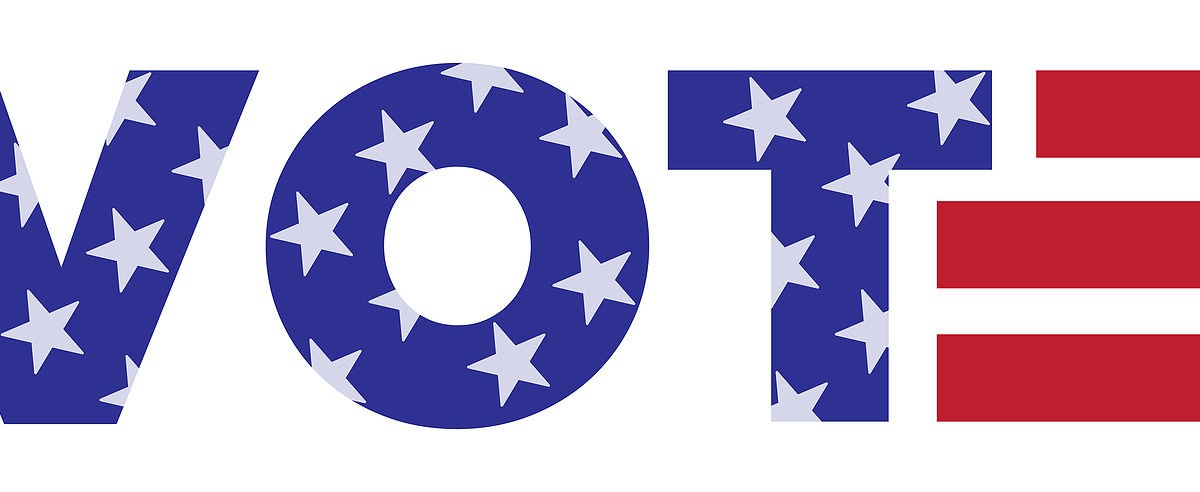As of this writing, well more than 18 million people have cast their votes already, and Election Day is still two weeks away. Long waits and long lines have greeted those who are registering their support for or against the current regime and for or against the down-ballot candidates in state and local offices.
All this is good news, because it suggests that voter turnout this year may set new records for participation, signaling that our nation recognizes the perilousness of this time — but also, hopefully, a deeper truth: your vote matters to God.

Paul Robeson Ford
This is a claim that should upset none, except those who are still tarrying under the shallow notion that “religion and politics don’t mix.” In fact, the two have always mixed, and — whether most of us want to admit it or not — our religious values and theological commitments deeply influence our political views and positions. And that is the way it should be.
Our crisis in recent years is not political, but moral; and if it is moral, then it is theological. How we view our relationship to God directly determines how we view our relationship with each other.
Our vote matters to God, because it communicates as much about what we see in our relationship with the divine as it does about what we see in our relationships with each other.
Christians have declared for years that we are “the hands and feet of Christ,” and process theology has suggested that on this earthly plane, we are co-creators with God: What we see in this world is a product not just of God’s work, but also our own.
If the wicked seem to prevail, then we have as much culpability for such things as does “the sovereign will of God.”
“If we don’t take God into the voting booth with us, then we should not be surprised if we can’t find God in the election results that come afterward.”
What this all means for a country that makes great pretense to being a democracy is that we are responsible for creating, sustaining and nurturing a nation that either looks like the kingdom of heaven or looks like the kingdom of hell. None of this is to suggest that we can do it all by ourselves — or that God is not capable of intervening in determinative ways (I’ve never been willing to go that far with the process theologians) — but what it does mean is that if we don’t take God into the voting booth with us, then we should not be surprised if we can’t find God in the election results that come afterward.
Nearly 80 years ago, Winston Churchill famously remarked that “democracy is the worst form of government except for all those other forms that have been tried from time to time.” His comments were then (and certainly are now) a sober reminder that this vaunted system of decision-making is far from flawless or even worthy of the idolatry we often render to it. John Calvin’s great insight was that the Fall was “noetic” in nature — meaning that our minds were broken as badly as our flesh — and the truth is that we just have not thought up anything better than the way we do things now.
There is nothing “exceptional” about American democracy, and what should really define Christians as voters is not any nationalistic fervor (unless, of course, we are talking about the “holy nation”) but instead, a passionate concern for representing God in the public square and in our corporate lives together.
This means we must take God with us as we vote, and specifically, the politics of Jesus must be at the forefront of our minds as we pull that lever.
“The politics of Jesus must be at the forefront of our minds as we pull that lever.”
How will my vote impact the poor in this country? How will it impact the widows and the orphans? How will it help or hurt the strangers (immigrants) at the gate? What will it do for the sick and the naked and the thirsty? Will my vote make clear that I “remember those in prison” as though I were in prison with them (bearing in mind that prisoners can only vote in two states in this nation)? If these questions are not driving our decision-making at the ballot box, then we need to renounce our baptism immediately.
To be sure, there are other biblically based concerns that Christians should be thinking about on Election Day, but if we are honest with ourselves, those other concerns have taken up far too much attention for decades now, while the plight of the “least of these” has been relegated to the margins where those very people often live.
If the indecency and depravity of the present has not convicted us that we went astray by focusing on private morality to the detriment of public morality, then I fear we may one day lament as Jeremiah did: “The harvest is past, the summer has ended, and we are not saved.”
We must recognize that the salvation of our nation is at stake in this election, and our actions in the days ahead must meet the seriousness of this present moment.
As commentators have pointed out, the voting results may very well be contested, and there remain ominous signs that these disputes may carry on well past any electoral controversy in recent memory; but when all is said and done, the choices we have made about winners and losers will tell the rest of the Christian world just how sincere we are about showing our faith by our works.
We will either co-create a future oriented toward equity, peace-with-justice and blessing the poor, or we will continue down this present path of self-immolation and Civil War-like division.
The choice is clear. Go (vote) with God.
Paul Robeson Ford serves as senior pastor of First Baptist Church (Highland Avenue) in Winston-Salem, N.C. He was born and raised in New York City and grew up at The Riverside Church under the leadership of James A. Forbes Jr. He received a master of divinity degree from the Divinity School at the University of Chicago, where he is now a candidate for the Ph.D. in theology.
Related articles:
Why vote? Because if we don’t do better, we will repeat history
Baptists, of all people, should work for voter participation


